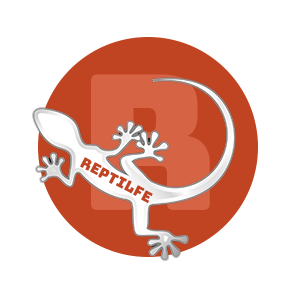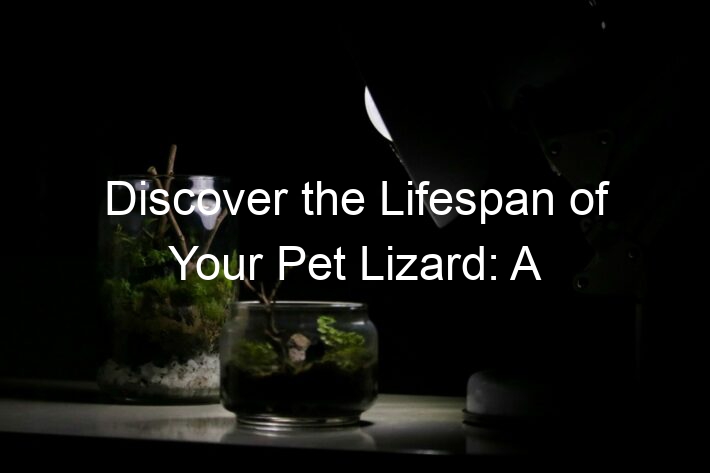Introduction: Debunking Reptile Care Misconceptions
Reptiles are fascinating creatures that have been around for millions of years. However, when it comes to their care, there are many misconceptions that can lead to improper care and even harm to these unique animals. In this blog post, we will debunk some of the most common reptile care myths and emphasize the importance of correct reptile care practices.
- Overview of common reptile care myths
There are numerous myths surrounding reptile care. Some people believe that reptiles don’t need much attention or care, while others think they can survive on a diet of just insects. These misconceptions can lead to poor health and even premature death for these animals. Let’s take a closer look at these myths and learn the truth about proper reptile care.
- The importance of correct reptile care practices
Proper care for reptiles is crucial for their health and longevity. Each species of reptile has specific needs in terms of diet, habitat, and care. Meeting these needs is essential for their well-being. Incorrect care practices can lead to stress, illness, and even death. Therefore, it is crucial to understand and implement correct care practices for your reptile.
By debunking these common myths, we hope to provide a clearer understanding of what it truly means to care for a reptile. In the following sections, we will delve deeper into specific areas of reptile care, including environment and habitat, health and wellness, and the truth about reptile care.
Stay tuned as we unravel the truth behind these reptile care misconceptions and provide you with accurate and reliable information to ensure your reptile lives a healthy and happy life.
Reptile Care Myths and Truths
There are many misconceptions about reptile care, and one of the most common is the belief that reptiles are low-maintenance pets. Let’s debunk this myth and shed light on the truth about reptile care requirements.
Myth 1: Reptiles are low-maintenance pets
Many people believe that reptiles are easy to care for, requiring minimal time and effort. This myth likely stems from the fact that reptiles, unlike dogs or cats, don’t need daily walks or constant attention. However, this doesn’t mean they are low-maintenance pets.
-
- The truth about reptile care requirements
Reptiles have specific needs that must be met to ensure their health and wellbeing. These include a suitable habitat, a balanced diet, and regular health check-ups. For instance, reptiles need a controlled environment with the right temperature and humidity levels. They also need a diet that matches their species-specific needs. Some reptiles, like snakes, eat a diet primarily of rodents, while others, like tortoises, are herbivores.
-
- Examples of common reptile care mistakes
One common mistake is not providing the right environment for your reptile. For example, many people keep their reptiles in tanks that are too small, which can lead to stress and health problems. Another common mistake is not providing the right diet. Feeding your reptile the wrong food can lead to malnutrition and other health issues. Lastly, many people neglect regular vet check-ups, which are crucial for detecting and treating potential health issues early.
In conclusion, while reptiles may not require the same level of interaction as other pets, they still require careful and attentive care. By understanding and meeting their specific needs, you can ensure your reptile lives a healthy and happy life.
Myth 2: All Reptiles Eat the Same Diet
One of the most common misconceptions about reptiles is that they all eat the same diet. This is far from the truth. Just like humans, each type of reptile has its unique dietary needs. Let’s delve into this myth and uncover the truth.
-
- Understanding the Diverse Dietary Needs of Different Reptiles
Reptiles are a diverse group of animals, and their dietary needs vary significantly. For instance, some reptiles, like certain types of turtles and lizards, are herbivores and thrive on a diet of plants. Others, such as snakes, are carnivores and need a diet rich in meat. Still, others like the bearded dragon are omnivores, eating both plants and meat. Understanding these differences is crucial to providing proper care for your reptile.
-
- Case Study: The Impact of Incorrect Diet on Reptile Health
Feeding your reptile an incorrect diet can have serious health implications. For example, a study conducted on green iguanas, which are primarily herbivores, found that those fed a diet high in animal protein suffered from kidney disease and other health issues. This highlights the importance of understanding and providing the correct diet for your reptile.
| Reptile Type | Dietary Needs |
|---|---|
| Turtles (Some Types) | Herbivores – Plant-based diet |
| Snakes | Carnivores – Meat-based diet |
| Bearded Dragons | Omnivores – Both plant and meat-based diet |
In conclusion, it’s clear that not all reptiles eat the same diet. By understanding the dietary needs of your specific reptile, you can provide them with the nutrition they need to live a healthy and happy life.
Reptile Care Misunderstandings: Environment and Habitat
One of the most common misunderstandings about reptile care is related to their environment and habitat. Let’s debunk a common myth.
Myth 3: Reptiles don’t need specific habitat conditions
Contrary to popular belief, reptiles do require specific habitat conditions. This myth can lead to improper care and negatively affect the health and well-being of your reptile pet.
-
- The importance of replicating a reptile’s natural habitat
Reptiles, like all animals, have evolved to thrive in specific environments. It’s crucial to replicate their natural habitat as closely as possible in captivity. This includes temperature, humidity, lighting, and the type of substrate used. For example, desert-dwelling reptiles such as bearded dragons need a warm, dry environment with plenty of light, while rainforest reptiles like the green tree python require a humid environment with plenty of climbing opportunities.
-
- Common mistakes in setting up a reptile habitat
Many reptile owners make the mistake of not providing the right conditions for their pets. Some common mistakes include not providing enough heat or UV light, using the wrong substrate, not providing enough hiding spots, and not maintaining the right humidity levels. These mistakes can lead to health problems such as respiratory infections, metabolic bone disease, and stress.
Remember, every reptile species has unique habitat requirements. Always research your specific reptile’s needs before setting up their habitat. This will ensure they live a healthy and happy life in your care.
Myth 4: Reptiles can live in small enclosures
One common misunderstanding about reptile care is the belief that these unique creatures can thrive in small enclosures. This myth is far from the truth. Let’s explore why.
- Understanding the space requirements of different reptiles
Reptiles, like all animals, require adequate space to move, explore, and engage in natural behaviors. The size of the enclosure should be proportionate to the size of the reptile. For instance, a small gecko might be comfortable in a 20-gallon tank, while a large python may require an enclosure that’s several feet in length.
It’s not just about the reptile’s physical size, though. The enclosure should also accommodate the reptile’s behavior and lifestyle. Some reptiles are climbers and need vertical space. Others are burrowers and require a deep substrate to dig in. Always research the specific needs of your reptile species before setting up their habitat.
- Key takeaways: The impact of enclosure size on reptile wellbeing
Providing a properly sized enclosure is crucial for your reptile’s health and happiness. A small enclosure can lead to stress, obesity, and other health issues. It can also limit your reptile’s ability to express natural behaviors, which can negatively impact their mental wellbeing.
| Reptile | Minimum Enclosure Size |
|---|---|
| Gecko | 20-gallon tank |
| Python | Several feet in length |
| Bearded Dragon | 40-gallon tank |
In conclusion, it’s essential to debunk the myth that reptiles can live in small enclosures. Always ensure you provide your reptile with a spacious habitat that caters to their specific needs. Remember, a happy reptile is a healthy reptile!
Reptile Care Myth Busting: Health and Wellness
When it comes to the health and wellness of our reptile friends, there are many misconceptions. One such myth is that reptiles don’t need regular vet check-ups. Let’s debunk this myth and shed some light on the importance of regular vet visits for reptiles.
Myth 5: Reptiles don’t need regular vet check-ups
Some people believe that reptiles, being low-maintenance pets, don’t require regular vet check-ups. This is a myth that can lead to serious health issues for your reptile. Let’s understand why.
-
- Why regular vet visits are crucial for reptile health
Regular vet visits are essential for maintaining the health and wellness of your reptile. Vets can monitor the growth and development of your pet, provide necessary vaccinations, and detect any potential health issues early. According to a study, about 70% of health issues in reptiles can be detected and treated early with regular vet check-ups.
-
- Common health issues that can be prevented with regular check-ups
There are several common health issues in reptiles that can be prevented with regular vet visits. These include respiratory infections, metabolic bone disease, and parasites. Regular check-ups can help in early detection and treatment, preventing these conditions from becoming severe.
In conclusion, regular vet visits are not just beneficial, but crucial for the health and wellness of your reptile. So, let’s bust the myth and ensure our reptiles get the care they deserve.
Myth 6: Reptiles don’t show signs of illness
Many people believe that reptiles don’t show signs of illness, but this is a common misconception. In reality, reptiles do exhibit signs of illness, but they can be subtle and easy to miss if you’re not familiar with their normal behavior and appearance.
-
- How to recognize signs of illness in reptiles
Reptiles, like any other animals, can fall ill. However, their signs of illness can be different from those of mammals. Here are some signs to look out for:
-
-
- Changes in behavior: If your reptile is usually active and suddenly becomes lethargic, or vice versa, it could be a sign of illness.
- Changes in eating habits: A sudden loss of appetite or increased appetite can indicate a health problem.
- Changes in appearance: Look for changes in skin color, eye clarity, and body weight. Unusual spots, swelling, or discharge can also be signs of illness.
-
Remember, early detection is key to successful treatment. If you notice any of these signs, it’s important to consult a vet immediately.
-
- Case study: The consequences of ignoring signs of illness
Ignoring signs of illness in reptiles can lead to serious consequences. Let’s look at a case study involving a bearded dragon named Spike.
Spike’s owner noticed that he was eating less and seemed lethargic, but assumed it was due to a change in season. However, Spike’s condition worsened over time, and by the time he was taken to the vet, he was severely dehydrated and malnourished. Despite the vet’s best efforts, Spike didn’t survive.
This case study highlights the importance of recognizing and responding to signs of illness in reptiles. If Spike’s owner had sought medical attention earlier, Spike might have had a better chance of survival.
In conclusion, it’s crucial to debunk the myth that reptiles don’t show signs of illness. By understanding and recognizing these signs, we can ensure our reptilian friends live healthy and happy lives.
Conclusion: The Truth about Reptile Care
As we wrap up our discussion on reptile care, it’s important to reflect on the key insights we’ve gathered. We’ve debunked several myths and misconceptions, and highlighted the importance of reliable, factual information in ensuring the health and wellness of our scaly friends.
-
- Summary of debunked reptile care myths
Throughout our discussion, we’ve debunked several myths about reptile care. For instance, we’ve learned that reptiles do not thrive in the same environmental conditions as their wild counterparts, and that they require specific habitats tailored to their individual needs. We’ve also discovered that a reptile’s health and wellness are not solely determined by its diet, but also by its overall care and environment.
-
- The importance of reliable reptile care information
Reliable information is the cornerstone of effective reptile care. Misinformation can lead to improper care, which can have serious consequences for a reptile’s health and well-being. Therefore, it’s crucial to seek out reputable sources of information, such as professional herpetologists, experienced reptile keepers, and reputable pet care guides.
In conclusion, caring for reptiles is a rewarding experience that requires a commitment to learning and understanding their unique needs. By debunking myths and relying on reliable information, we can ensure that our reptilian companions live healthy, happy lives.
“The greatness of a nation and its moral progress can be judged by the way its animals are treated.” – Mahatma Gandhi
Let’s apply this wisdom to our reptile care practices and strive to provide the best possible care for our scaly friends.




